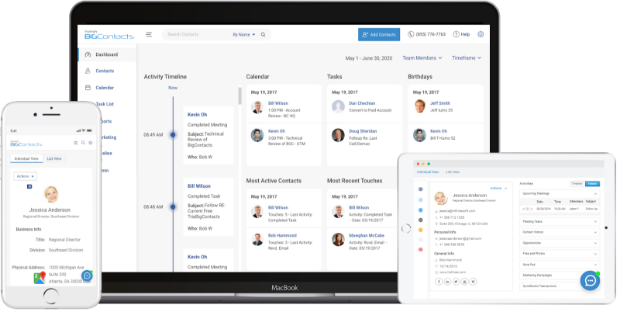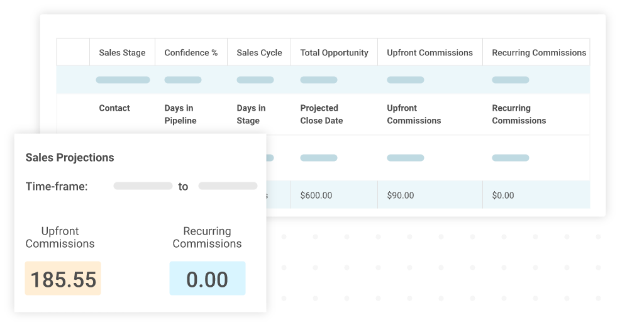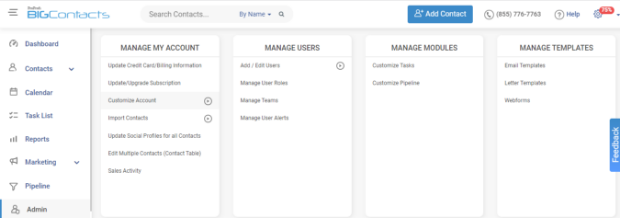While most businesses take their time to find the best CRM software, very few of them pay attention to its implementation. Consequently, they see no real results and are left wondering-
What went wrong?
Mere adoption of CRM isn’t enough to guarantee profits for your business. To add a CRM tool to your company’s tech stack, you must have a proper CRM implementation strategy.
Since you are completely revamping your customer relationship management approach, it is crucial to ensure that there are no slip-ups. This is why following a well-designed implementation plan can help.
But how do you create an implementation plan that suits your specific needs?
We are here with a detailed CRM implementation guide to help you out. Discover 12 simple steps to develop an implementation plan that enhances your CRM outcomes. Before we get started with these steps, let’s understand why there is such a buzz about CRM implementation.
What Is CRM Implementation?
A CRM system cannot be simply adopted.
It requires an understanding of business requirements and a proper plan of action to get the system up and running. This process of getting a CRM system working effectively for your organization is referred to as CRM implementation.
There are several things to work around when drafting a CRM implementation strategy.
How steep is the learning curve of the tool?
How much time and money are you willing to allocate to the implementation process?
What features are you looking for, and what are your expectations from the tool?
Once you have these answers, you must clearly define the steps that have to be taken at every stage of the implementation process. Seek the opinion of all the stakeholders involved throughout the roll-out. This can help you avoid underutilizing the tool and get the maximum benefit out of it.
Benefits of CRM Implementation
Before getting into details about how to implement a CRM, let’s answer a pertinent question-
Is it worth all the trouble?
CRM produces a return of $8.71 for every dollar spent. Furthermore, CRM usage can reduce sales cycle length by up to 14%.
However, these benefits can only be obtained through a well-implemented CRM system that is optimized for effective performance. This brings forth the importance of having a well-defined implementation plan. Some of the most significant benefits of an effective CRM implementation plan include:
More Sales
Effective implementation of CRM system empowers your team to close more deals. CRM can considerably impact the bottom line by bringing all essential data to one place and keeping it updated in real-time. It can enhance visibility into the sales pipeline, helping you monitor the positions and conversion probability of the opportunities you are working with.

Better Satisfaction & Retention
Proactive customer service can considerably improve your marketplace positioning. To delight and retain more customers, you need to enhance your interactions. This can be accomplished with a CRM implementation project plan that effectively improves your customer engagement and boosts retention levels.
Efficient Utilization of Data
Implementing CRM system properly ensures better access to customer data. Whether you’re in sales, support, or a project manager, you can help your team view updated information from a single place and never drop the ball with prospects. You can track your prospects and customers’ buying preferences, contact information, pain points, and needs anytime, anywhere.

Empowers Your Team
Implementing a CRM system properly can keep your team working together seamlessly. It can boost accountability and transparency, helping everyone view data from a centralized platform. Furthermore, you can set up automated actions and workflows to improve overall productivity.
Read More: Top 7 Ways CRM Software Helps You Manage Tasks & Workflow in 2025
Better Business Decisions
A properly implemented CRM with robust reporting capabilities empowers you to achieve better visibility into your business operations. It enables you to make more accurate forecasts and plan for the future. With advanced analytics and custom reporting, you can visualize business data in real-time and discover ways to maximize the efficiency of your operations.

CRM Implementation – 12 Steps to Go About It
Laying out a seamless CRM implementation roadmap is a task that requires time and effort.
All business enterprises have different objectives. This is why there is no one-size-fits-all implementation approach. You must lay out a detailed and customized implementation plan that matches your team and company’s needs.
With time, you can expand the scope of implementation to address various areas. This organic growth will be a natural progression, and your ROI will increase exponentially over time.
Read More: Top 9 CRM for Agencies [Features, Benefits & Pricing]
Here are 12 simple steps to keep in mind when crafting your implementation plan:
1. Define Objectives & Budget Clearly
Clearly define what areas you are experiencing problems with, what features you require, and what goals you wish to achieve. The more specific and achievable your CRM goals are, the easier it will be for you to define an optimal strategy. Keeping your objectives broad may be the easy way out, but it will not produce the best results.
Narrow down the focus of your CRM software implementation to precise and measurable goals. Estimate the CRM implementation costs, resources, and required working hours. Also, take into account your existing systems and available infrastructure.
2. Map out the Timeline
Break down the implementation process into distinct phases. This can make the process more manageable and organized. Such a project plan has clearly defined timelines for individual stages, making progress tracking significantly easier.
The implementation process can be split into planning, migration, testing, deployment, and training. Every stage has distinct objectives and estimated timelines. This helps ensure that things remain on track throughout the implementation process.
3. Involve Upper Management
To garner support for your implementation goals, you must lead by example. Successful CRM system implementation involves the cooperation of multiple departments. Top-level management is the glue that keeps your departments working toward a common goal.
Enthusiasm is contagious and has a definite trickle-down effect. Clearly indicating the upper management’s enthusiasm for and commitment to CRM will encourage participation from everyone. CRM is not a simple get-it-and-forget-it solution. Therefore, top management must consistently take the lead in crafting new initiatives to promote staff involvement.
4. Migrate Clean Data
You need to migrate a large volume of data to the CRM software during the course of its implementation. It is important to ensure the accuracy of this data. Declutter your database by removing or merging duplicates before it is fed into the CRM software. You can also segment your customer data before the migration.
Data cleansing is one of the CRM best practices that can be highly beneficial in the long run. You need to use the data effectively if you wish to see promising results. Ensure that the data being migrated to your CRM is usable and can deliver actionable insights.

Read More: How to Keep Your CRM Data Clean: 10 Best Practices to Get Started
5. Focus on Training
Providing adequate training can help your team members get more comfortable with the software. Ensure that you devote enough time for training in your implementation process. Provide your team with enough time and adequate resources to become familiar with the tool and its application.
Organize training sessions with the CRM vendor to get better acquainted with the tool during the roll-out. You also need to define internal usage guidelines to avoid confusion and bring uniformity to the whole process. Include proper documentation and help your team understand the “why” behind the implementation.
6. Include Customizations
Complicated interfaces or features that clutter the system can be a nightmare for the end-users. Therefore, you must modify the CRM application to perfectly align with your team’s needs and business objectives.
Identify the unique requirements of your team members and adapt the CRM tool accordingly. Customize workflows, pipeline stages, views, fields, etc., to match your existing processes. This can ensure that your team is able to make the most out of the CRM application. A well-adapted tool to suit the employees’ needs will have a higher adoption rate and, consequently, be used extensively.

7. Appoint the Right Personnel
Have a dedicated team to ensure smooth execution of the implementation plan. Appoint a specialist as a project manager for overseeing these operations. The appointed project manager should know the system in and out and encourage the team to get acquainted with the functionalities.
The project manager can also stay in touch with the vendor and educate the team about any new developments related to the project. With the help of a dedicated team, the implementation timeline can be shortened without any compromise with effectiveness.
8. Carry Out a Risk Assessment
Being aware of the challenges you may encounter during the roll-out can help you better prepare for them. One of the implementation best practices is to carry out a risk analysis with your requirements in mind.
Finding out the scope of implementation can help you map out the right strategy and keep a note of all that can go wrong. Get an estimate of the timeline, budget, and level of training you need to provide for an effortless adoption of the CRM system.
9. Set Relevant KPIs
Certain success factors of CRM of KPIs should be tracked to measure the success of your CRM implementation process. It is crucial to monitor the progress of your initiatives regularly. By tracking how well the implementation strategy is working, you can identify the required adjustments to improve its efficiency.
While your strategy may have looked perfect on paper, there are several things that you will learn when you start working on the ground. Make sure you have a flexible strategy that can be adjusted based on the ongoing progress of the implementation.
10. Focus on Integrations
Take into account how the CRM system will fit in with your existing business ecosystem. Consider the type of integrations supported by the CRM tool and set up the most relevant ones to get the most out of your tool.
Integrate the CRM with the third-party apps that your team is already accustomed to using. This will help them manage all operations from a single place, making their job easier and further increasing adoption. Integrating your CRM with popular applications right off the bat will help your team get the most out of the system.
11. Monitor Adoption Rates
Not only do your employees need to learn how to use the tool, but they also need to be motivated to use it. Some members of the organization may not be as accepting of the change as you would expect them to be. You need to handle this situation tactfully and help them realize the potential of the CRM.
An easy way to identify if your CRM system is being used is to monitor the adoption and usage rate. This review should be a routine process. Track user logins and encourage your team to use the CRM system to manage their daily tasks and activities.
12. Incorporate Team Feedback
To get a clear picture of how the team members are faring with the new system, continuously run reports and seek feedback. This can help you discover any improvements that may be needed in the implementation strategy or any feature that they feel the system currently lacks.
Since your team members are the ones who are going to use the tool eventually, it is important to consider their opinion. Get in touch with different departments and find out how to improve the interface to make the tool more accessible.
CRM Implementation Challenges
An effective implementation plan also takes into account the possible risks and challenges that may arise during the process. While it is impossible to plan for unforeseen obstacles, it can help to be aware of common challenges and prepare for them in advance.
Some of the common risks involved with the implementation of CRM technology are-
Not Choosing the Right CRM
The CRM system you choose should be the most optimal solution for your enterprise. The tool should align with your business objectives and be scalable. It should have a short learning curve, offer multiple integrations and be easy to use.
Carry out a deep analysis of your needs and expectations before you invest in any tool. Also, make use of the free trial, if available, to get a first-hand experience of the tool’s utility.
Read More: Free CRM Comparison Spreadsheet (How to Choose a CRM)
Going Beyond Budget Estimates
Estimating the budget for implementing a CRM system is a challenging task. However, it is an extremely crucial step that ensures that you are aware of the overall cost of CRM implementation and stick to the budget throughout.
Make sure you choose a CRM vendor with a transparent pricing structure and no hidden costs involved. When making your budget estimates, consider the project’s scope, onboarding costs, number of users, exceeding limit charges, the average cost of CRM implementation, etc.
Failing to Match the Timeline
Slow migration will cause unnecessary delays in your operations. On the other hand, rushing the process will not give your team enough time to get accustomed to the system.
Therefore, you have to get the timing just right. Estimate the time to be spent in each implementation phase before getting started. The time required for different stages of the implementation depends on the tool you are working with, its learning curve, and the size of your business. It’s important not to rush the process and give your team the time it needs to adapt to the new technology.
Low User Adoption
Any technology that is inconvenient defeats its purpose.
A complicated CRM tool that gets in the way of your team members’ activities will have a low adoption rate. Moreover, transitioning to a new system may not receive a warm welcome from employees who are set in their own ways. Therefore, you must choose an easy-to-use tool and help your team embrace technology instead of resisting it.
Your employees need to know how to effectively leverage the CRM tool to produce the results that you expect. This requires adequate training and support.
Not Having a Clear Strategy
Standalone approaches do not work for the implementation of CRM systems. You need to know what you want to accomplish and draft a clear strategy with the best practices for CRM implementation. Set realistic goals and figure out a plan to seamlessly integrate the software into your business.
The strategy that you devise has to be time and cost-effective. This requires you to be aware of the scope of the transition, including associated costs and the amount of data to be migrated.
Enhance CRM Outputs With Simplification
Lastly, the more complex your CRM implementation gets, the more likely it is to go wrong.
Keeping it simple can help your team use the CRM tool to the best of its ability. While you may get tempted to go for the advanced features, they will complicate things unnecessarily. You will end up wasting more time managing the tool than you would save from its implementation.
Therefore, simplify things to the maximum extent possible. Choose an uncomplicated tool, have a clear approach, and eliminate activities that take up unnecessary time. Also, make use of the available customer support and onboarding assistance to get your CRM system ready for action. You can further simplify the implementation processes by taking advantage of the automation capabilities of a powerful CRM tool such as BIGContacts.
FREE. All Features. FOREVER!
Try our Forever FREE account with all premium features!






